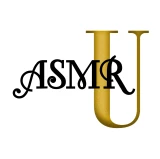
Manon B.C. is a graduate student, pursuing a Master’s degree in developmental psychology at the University of Paris 8 in France.
Her research thesis is investigating the potential links between ASMR and attachment styles.
Manon’s faculty advisor for the study is Dr. Laurence Martel, Professor and researcher at Paris 8 University.
The survey is open to individuals who are between 18 and 60 years old, who experience ASMR or who at least consume ASMR content regularly, and who speak French, at least fluently if not natively.
The comprehension of French is necessary, as it would ensure participants understand the questions and the consent they’d need to give to participate in the first place.
The survey is fully anonymous and the results will only be used for academic purposes.
The survey will take approximately 15 minutes to complete.
Below is a link for more information and to participate. Continue reading
